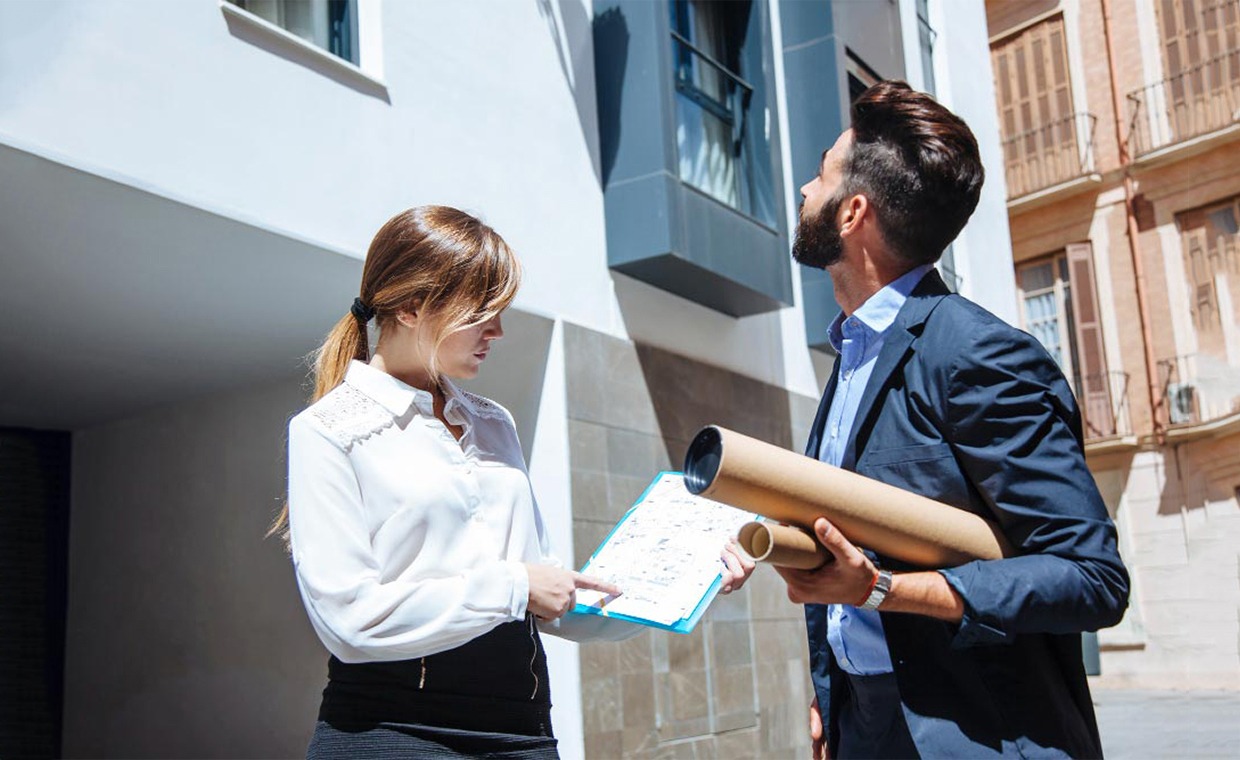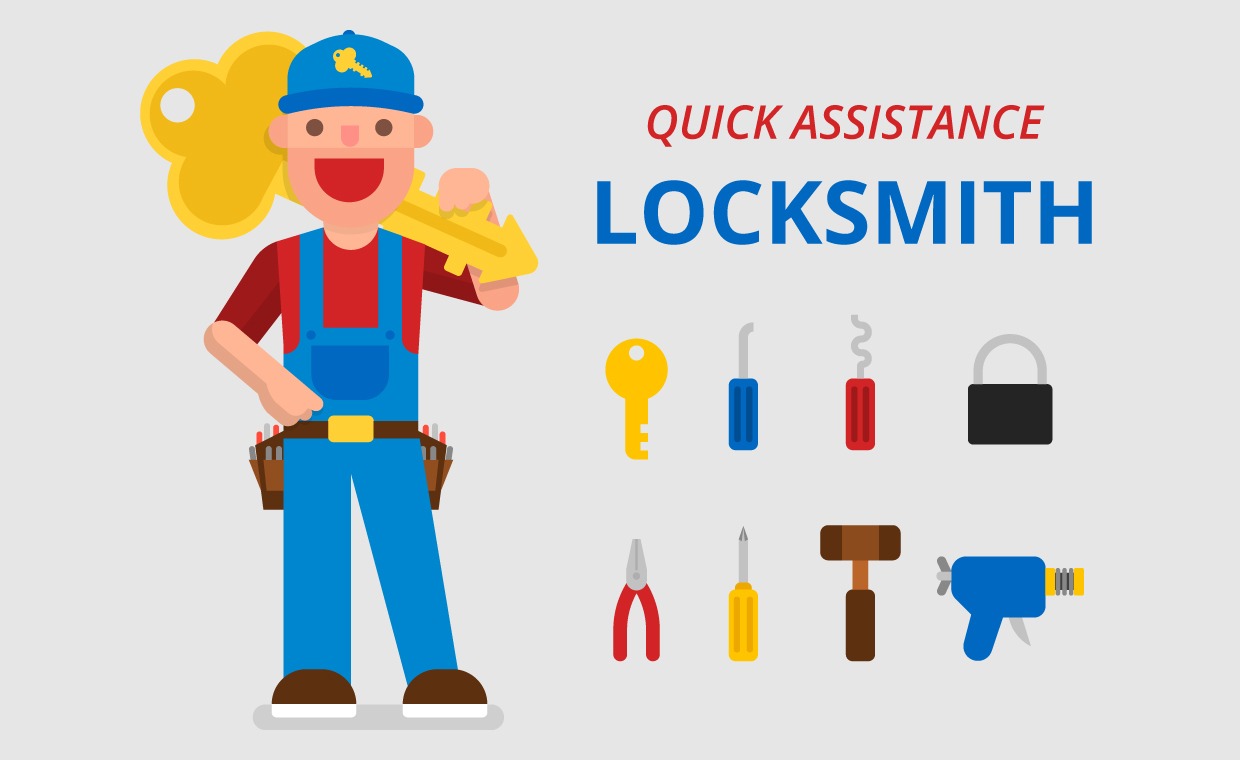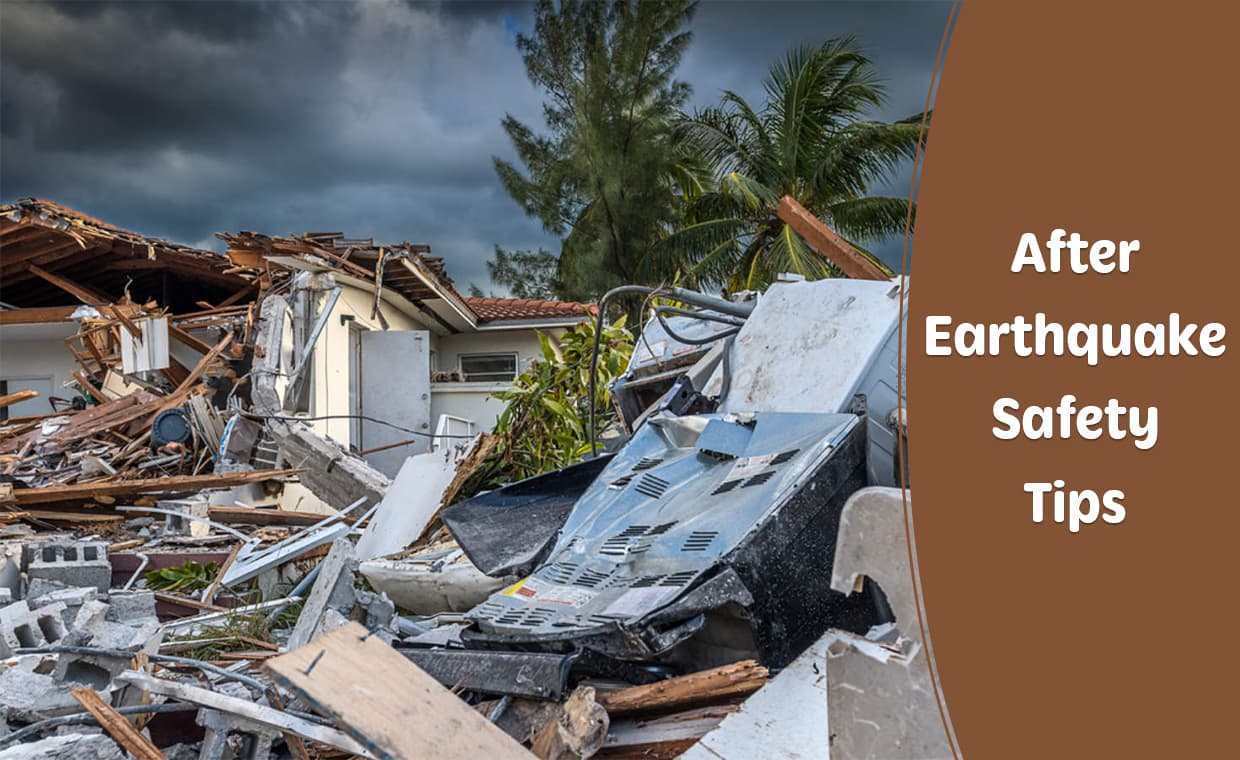
Earthquake is one of the terrifying natural calamities that challenges human safety. An earthquake can disrupt and disturb human life to a greater extent. Earthquake is shaking or displacement of the earth’s crust. Depending upon the intensity of the earthquake, tremors are felt. An earthquake lasts for a very short time, but tremors can be felt for a longer period of time even after the major occurrence. Such tremors are termed as aftershocks. These tremors can be of low or high or very high intensity. Thus staying safe after the occurrence of earthquake is also a foremost concern. To stay safe, here we give some safety tips after earthquake which you ought to follow before going back to your normal routine.
Safety Tips after Earthquake
Tips for Helping Self & Others after the Earthquake
Tip 1: After the occurrence of an earthquake, first check your own self for injuries. Individuals panic under such circumstances and run around to help others least caring whether they need any medical assistance or no! If you are injured or wounded, get medical help for yourself first. Ignoring your injury can sometime prove fatal. Taking care of self will help you take care of others and your near ones.
Tip 2: After getting proper medical aid for yourself, help the trapped or injured people. Call the emergency helpline number. Never try to shift severely injured people yourselves unless they are in immediate possibility of further injuries.
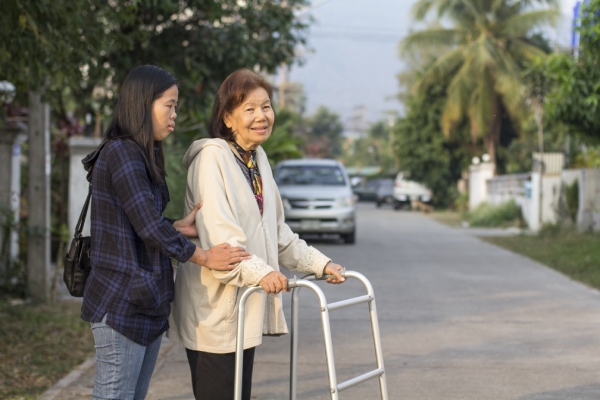
Tip 3: Wear long pants, full-sleeved shirt, work gloves and shoes to protect yourself from any danger or injuries. This will help you to protect yourself from further injury from broken objects. Wear shoes or gumboots if possible, in all the areas near broken glass or debris.
Tip 4: The most important thing is to keep the emergency kit ready. Earthquake emergency kit includes first aid kit which comprises of basic medicines, battery operated radio, flashlights or torches, extra battery cells, mobile charger with power bank whistle for signaling, gloves, rope for rescue, knife, water bottles or pouches and food packets for children as well as pets. As we never know when the emergency can arise, the kit must always be placed in such a way that is easily accessible.
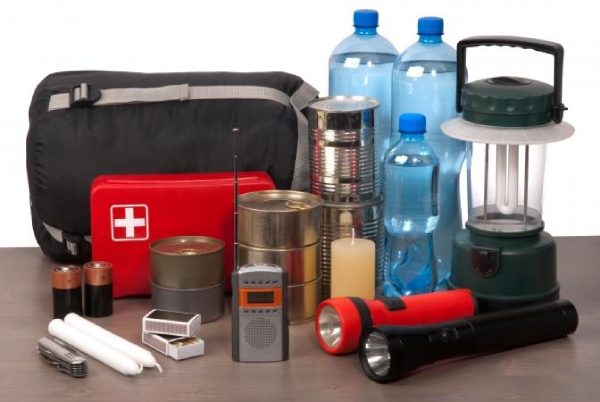
Tip 5: Never touch the objects that are in contact with the downed wires or downed power lines.
Tip 6: Immediately clean the drugs, spilled medicines, bleaches, gasoline and other harmful/flammable materials. Be extremely cautious while cleaning spilled chemicals that might have mixed with other chemicals during shaking as it may cause harmful effects. Open the windows for better ventilation.
Tip 7: Check the closets, cabinet and storage shelf areas. Open them carefully and watch for objects falling from shelves. Contents may have shifted during the tremors which may fall causing injury or damage to you.
Tip 8: Help your neighbours who may need special assistance. Elderly and disabled people require additional assistance. People who care for them or who have large families may require helping hands in such emergency situations.
Tips for Structural Safety of the Building after the Earthquake
Tip 9: Remain alert and be prepared for aftershocks. Each time you feel one, cover, drop and hold on! Aftershocks often happen after minutes, days, weeks, and even months following an earthquake. Mostly aftershocks are of lesser intensity than the main shock. However, some of them could be of higher intensity which can lead to severe damage.
Tip 10: Check for any damage in your house or to its structure. Move out from your home immediately if it is unsafe because aftershocks can also damage a weakened structure. In case of any major damage to your house during earthquake, move out without further ado before aftershocks occur.
Tip 11: Use battery-powered flashlights or lanterns to inspect your house. Kerosene lanterns, candles, and match-sticks are not advisable as they may cause fire.
Tip 12: Pay attention to fallen power lines or broken gas lines, and stay away from damaged areas. Earthquake hazards are often hard to see and you could easily get injured.
Tip 13: If you are indoors, check the structural aspects of the building. If any part of the structure appears to be unsafe, move yourself and others from the building to a safer place until a more detailed inspection is made.
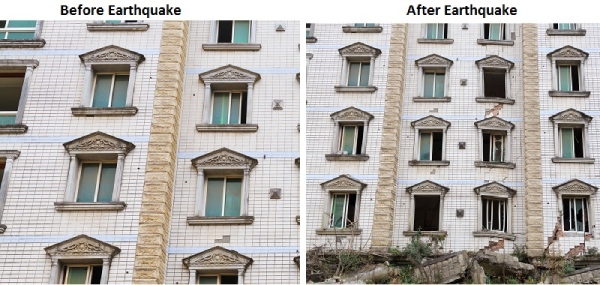
Tip 14: Buildings that are damaged by the main shock can receive additional damage from aftershocks. Hence, stay out of already damaged building. Get the building inspected by competent authority or experienced structural engineer before entering into the building.
Tip 15: If you are away from home, enter your home only after it is declared safe and there is a head-nod from the concerned authorities. Damaged buildings can collapse due to aftershocks following the main earthquake.
Tip 16: Needless to say that you have to be extremely cautious while entering the buildings. There can be damages in the building where you least expect it. Watch carefully every single step you take.
Tip 17: Examine floor, walls, doors, windows, staircases to ensure that the building is not in danger of collapsing. If required, call for professional help to check and fix them.
Tip 18: Check for drywall, loose plaster and ceilings that may fall and can cause injury to you. Do proper assessment of these elements of the house and if found damaged, contact the experts for any further action that needs to be taken.
Safety Tips for Water and Sewerage Services after the Earthquake
Tip 19: Shut off the main valve that supplies water into the home in case water pipes are broken. If water pipelines are damaged, call the water repair company and avoid using tap water. Safe water can be obtained by melting ice cubes or from undamaged water heaters.
Tip 20: If safe water is unavailable, water can be obtained on emergency basis from canned vegetables, from melted ice cubes, from toilet tanks if no sanitizing chemicals have been added, from spas and swimming pools. You can also strain water through handkerchief from water heaters if any such need arises.
Tip 21: Please check the sewage lines wherever they are intact before permitting continued flushing of toilets.
Tip 22: Do not drink or eat anything from open shattered container. It is advisable to filter liquids by using a clean cloth before consuming them.
Tips to Avoid Possible Fire after the Earthquake
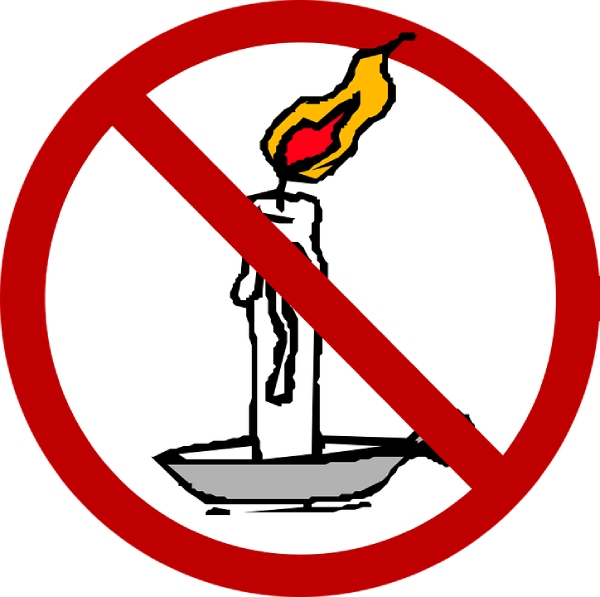
Tip 23: Avoid use of candles, match-sticks or any other open flames immediately after the occurrence of earthquake. If you sense any leakage of cooking gas or if there are indications of gas leakage, open all the doors and windows so that the gas can escape instantly. Shut off the main valve of gas meter, and notify authorities of the leak. Do not re-enter into the house till repairs have been done and the dwelling has been declared a safe place by competent authority.
Tip 24: Fire is the most common risk after the occurrence of any earthquake. Hence, look for and try to extinguish minor fires. Eliminate fire hazards. Quickly putting out the small fires with the help of available means, will prevent it from spreading further.
Tip 25: If there is a chimney in your home, check it thoroughly from bottom to top for cracks and damage, particularly in the attic and at the roof line. Unnoticed damage could lead to a collapse or fire in aftershocks. The initial check must be done from a distance. Cracks in chimneys can be the reason of a fire after gases.
Tip 26: Do not smoke inside the home/buildings. There is a chance of gas leakage in home due to broken gas lines, which may cause fire with combined effect of smoking.
Also Read: 12 Tips to Prevent Fire at Our Home
Safety Tips for Electrical Service after the Earthquake
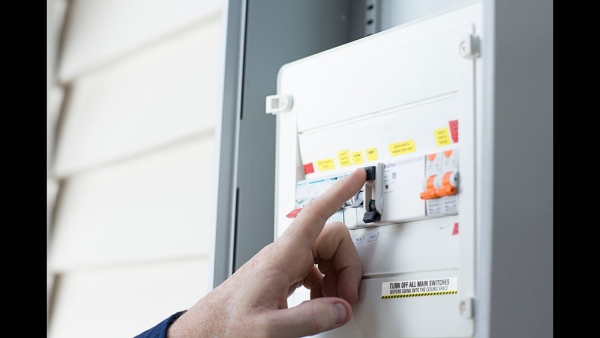
Tip 27: If short circuit takes place, turn off the main electricity at the meter box. Short circuit may turn in to massive fire due to carelessness. Contact electrician before you switch on the main switch. Do not try to do electrical work by yourself.
Tip 28: Look if there is any disruption or no in the electrical system. Turn off the power at the central fuse box or circuit breaker if you see sparks or bent or frayed cables, or if you smell burning insulation. If you need to step into water fuse box or circuit breaker, call an electrician first for advice.
You can follow the mentioned below tips for avoiding electrical hazards.
Electrical Safety Rules to Avoid Electrical Hazards
10+ Important Electrical Safety Tips to Make Your Home Accident a Shock-free!
Tips for Preparing Food after the Earthquake
Tip 29: If power supply is shunned, check your refrigerator and plan to use eatables which spoil immediately.
Tip 30: Use outdoor charcoal for emergency cooking. Ensure to keep these items outdoors. The inflation of fumes from their use can be hazardous as well.
Possible Tsunami
Tip 31: If the tremors of the earthquake are experienced for more than 20 seconds, there are chances of tsunami in the coastal regions. According to ‘Humboldt Earthquake Education Center at Humboldt State University ’, start counting the time as to how long the earthquake lasts. If it lasts for20 seconds or more and if you are located in a tsunami hazard zone, evacuate the place as early as possible as it is safest thing to do. Instantaneously move to higher floors of nearby building or any proximate hilly region. Do not wait for an official warning/instruction under such circumstances.
Tips to Help the Public Remain Disciplined after the Earthquake
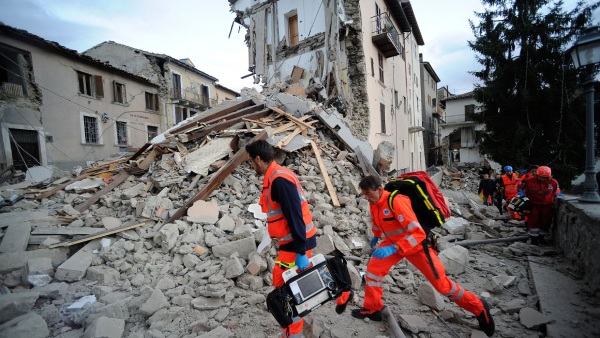
Tip 32: Do not use your telephone/mobile except for utmost emergency calls. Use them only for reporting life-threatening emergencies. In emergency cases telephone lines are frequently busy. In order to get through they need to be open for emergency calls.
Tip 33: Do not let rumors spread. They do great harm in the wake of disasters.
Tip 34: Do not go out to look around for what is happening. Avoid the use of your vehicle unless there is a genuine emergency. Keep the streets/roads clear for emergency vehicles.
Tip 35: Respond to the request for help from various departments like firefighting, civil defense, police, and relief organizations, but do not go into damaged areas unless you are asked or requested to do so for some help. Co-operate fully with public safety officials. If you do not abide by the safety rules while the disaster operation is being carried on, you can be penalized or you can be even imprisoned in worst case.
Availing Help after the Earthquake
Tip 36: According to ‘Damon P. Coppola’ (Author of Introduction to International Disaster Management), listen to a portable, battery-operated radio (or television) for updated emergency information and instructions. If the power is off, radio can be the only source of your information. Local officials and local radio provide the most appropriate instruction/advice for your existing situation.
Tips to Help Your Pets after the Earthquake

Tip 37: Watch the animals carefully. Leash dogs and put them in a fenced yard. Pet’s behaviour may change dramatically and drastically after an earthquake. Often quiet and friendly dogs and cats may become defensive or aggressive.
Tips to Get Insurance of Your Damaged Home after the Earthquake
Tip 38: Do not forget to click the pictures of your damaged home and its contents for insurance claims. Of course, it might take some time to receive the compensatory amount but this helps in initiating the procedures.Earthquakes can be devastating disasters, but if we take adequate precaution and follow safety rules, we can minimize injuries, damages and other potential quake concerns. Hope this article on safety tips after earthquake will help you save yourself and your loved ones.
Must Read:
Buildings Collapse During Earthquake due to Unsymmetrical Architectural Configuration

























